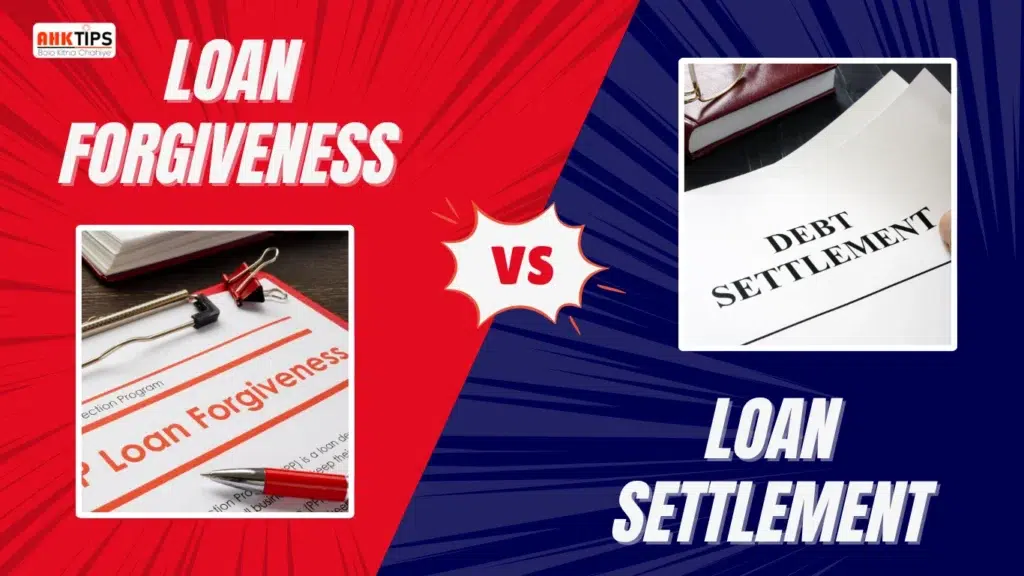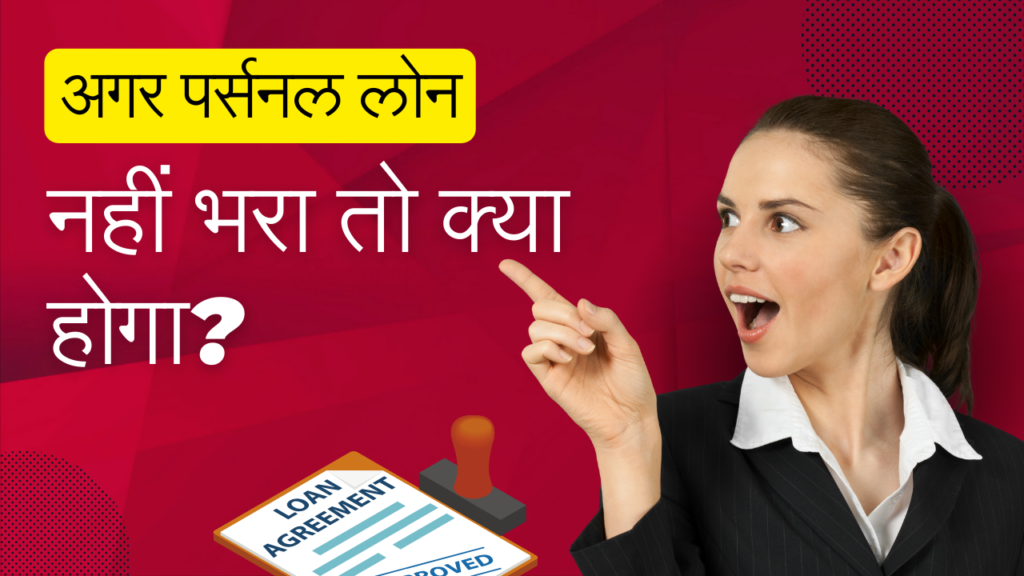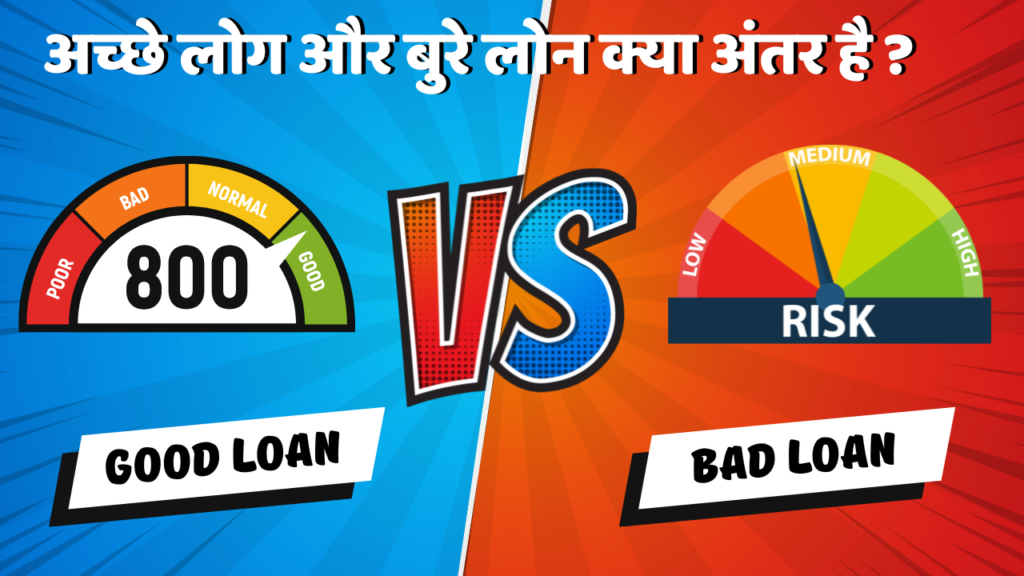Summary
Two strategies to handle overdue loans are loan settlement and forgiveness. Loan forgiveness is when the government or bank cancels part or all of your loan without requesting repayment. Usually, it relates in particular to natural calamities, borrower death, disability, or another government program. Amount settlement is the process by which a borrower is unable to pay back the entire amount owing due to financial difficulty. The bank takes less to close the loan. While settlement damages your credit report and lowers your future loan prospects, forgiveness does not lower your credit score. While settlement calls for negotiations with the bank, forgiveness is policy-based and limited to particular people. If at all possible, forgive since it protects your credit record. Settlement should only be taken into account once there is no other way to pay back the debt.
Introduction
Many people search for strategies to lighten their load when struggling to pay back a debt. Loan settlement and forgiveness are two often available choices. Although they sound alike, their working methods and impact on your financial destiny are somewhat different. Often, through special programs, loan forgiveness is the government or bank cancelling either part or all of your loan. Conversely, loan settlement is an agreement you negotiate with the bank whereby you pay a smaller amount to complete the loan. One should know the differences between the two, since one might preserve your credit score while the other can harm it. This essay will teach you the main variations, when each alternative fits, and which one would be preferable for your circumstances.
What Is Loan Forgiveness, and How Does It Differ from Loan Settlement?
Many debtors believe loan forgiveness and loan settlement mean the same thing, even if their names are different. There are two somewhat distinct approaches to dealing with overdue loans. Knowing what loan forgiveness is not like settlement can help you prevent credit damage and pick the appropriate payback schedule.
What Is Loan Forgiveness?
Loan forgiveness is the process whereby a lender or the government cancels some or all of your loan without expecting repayment. Usually, it is offered within particular guidelines and under particular projects.
When Can Loan Forgiveness Happen?
Most often observed is loan forgiveness in:
- Government policy decisions, especially during crises or disasters
- Certain sectors, like education or public service, where special forgiveness schemes may apply
- Cases involving permanent disability or death of the borrower
Though unusual, a government offer of forgiveness for student loans is possible in India under very limited conditions. A borrower cannot directly negotiate this with a bank.
Impact of Loan Forgiveness
Usually, loan forgiveness is not recorded negatively on credit bureaus. Given that it is regarded as an official waiver, it does not affect your credit score. Depending on the policy involved, forgiven amounts can occasionally be handled as taxable income, though.
What Is Loan Settlement?
Loan settlement occurs when a borrower fails to pay back the whole loan. Following a partial payment, the bank agrees to shut the loan account. The debt is tagged as resolved, and the unpaid balance is wiped off.
When Is Loan Settlement Considered?
Settlement is usually offered:
- When the loan starts to show non-performance (NPA)
- Should the borrower find himself in ongoing financial difficulty,
- following long-term default or unsuccessful attempts at repayment
Often, the only choice left after all other recovery strategies fail is loan settlement.
Impact of Loan Settlement
Settlement changes your credit record, unlike forgiveness. The loan will show on your credit report as “settled” rather than “closed,” therefore reducing your credit score. This makes loan, credit card, or even future employment prospects more difficult.
Key Differences Between Loan Forgiveness and Settlement
Source of Relief
- Government or policy decisions determine loan forgiveness. It does not follow from a personal negotiation.
- Usually, after default, loan settlement is an arrangement between the borrower and the lender.
Credit Impact
- Loan forgiveness does not compromise your credit report. It is handled as a neat closing.
- Loan settlement lowers your credit score and leaves a negative impact for many years.
Eligibility and Process
- Only under some plans with stated eligibility requirements is loan forgiveness accessible.
- Loan settlement usually follows default and calls for negotiation, evidence of financial difficulty.
Which One Is Better?
Should you be eligible for loan forgiveness, it is always the superior choice since it maintains your credit profile. The amount of settlement should only be taken into account should all other repayment choices fail and there is no means to pay the entire amount.
Eligibility Criteria for Loan Forgiveness vs Loan Settlement in India
If you find yourself having trouble paying back your debt, you should know about eligibility for loan forgiveness and settlement. Although they both provide relief, their effects on your financial record, processes, and goals differ. Knowing whether one applies to your circumstances will help you avoid long-term credit ruin.
What Is Loan Forgiveness?
Loan forgiveness is the decision taken by a government or bank to cancel some or all of your current loan. You are free of the obligation to pay back the forgiven sum. Limited to particular borrower groups, this alternative is generally accessible through government-backed schemes.
Who Can Qualify for Loan Forgiveness?
In India, loan forgiveness typically underlines the following:
- Borrowers impacted by public catastrophes or natural disasters
- Families of dead or permanently disabled borrowers
- Under several government programs, students from less economically developed areas
- Industries like farming, where the government might declare widespread exemptions
- State-level assistance initiatives aimed at troubled borrowers
Negotiating this is not what we do. Eligibility is based on the government or financial institution’s stated criteria under specific conditions.
How to Check Eligibility
Borrowers have to keep current on bank alerts and government notifications. Should a waiver program be instituted, you could be asked to provide:
- Proof of income
- For family cases, disability or death certificate
- Details of the education loans or copies
- Documents related to ID and address
Approval depends on satisfying every policy requirement.
What Is Loan Settlement?
Loan settlement involves negotiating with the bank to pay less than the whole outstanding balance. The bank shuts your loan account following a partial lump sum payment. Usually, this follows from the loan turning non-performance-wise.
Who Is Eligible for Loan Settlement?
Banks might think about settlement should:
- The debt is in default, and you have missed multiple EMIs.
- Medical problems, job loss, or lower income are causing real financial difficulty for you.
- You can make a partial payment even when you cannot pay the whole outstanding debt.
- The bank finds no better way for recovery.
Usually, this choice comes after more conventional recuperation strategies fail.
Documents Required for Loan Settlement
You could be required to provide:
- Written request clarifying financial difficulty
- Either an unemployment letter or income evidence
- Medical records (should they be relevant)
- Statements for loan accounts
It should agree, the bank provides a written settlement letter including the lowered sum and terms.
Main Differences in Eligibility
Loan Forgiveness
- Based on programs driven by the government or policies
- unrelated to your negotiations or past payment
- calls for you to fit a particular category set by the program.
Loan Settlement
- Based on your financial difficulty and failing repayments
- calls for direct bank negotiations.
- Leaves a “settled” notation on your credit report, therefore reducing your score.
Knowing your eligibility for loan forgiveness and settlement will help you decide which course of action best fits your circumstances.
Which Option Affects Your Credit Score More: Forgiveness or Settlement?
Many debtors who have trouble paying back loans think about either loan forgiveness or loan settlement as a means of lightening their financial load. Although they both lower the amount you pay back, their impact on your credit score is somewhat different. Knowing how credit score affects loan forgiveness against settlement will enable you to decide with knowledge for your financial future.
What Is Loan Forgiveness?
Debt forgiveness is the government or lender cancelling part or all of your debt balance. Usually part of a formal program or government policy meant to offer relief under particular circumstances, this cancellation is under loan forgiveness; the borrower is free from obligation regarding the forgiven amount.
Credit Score Impact of Loan Forgiveness
Usually, loan forgiveness either has no negative effect on your credit score or very little effect. The lender or government programs waive the forgiven amount, hence your credit report usually shows the debt as “closed” or “paid in full.” Credit bureaus do not decrease your credit score as this status indicates neither a default nor a delay.
Since you are formally debt-free without missed payments or defaults, loan forgiveness can sometimes help to keep a good credit record.
What Is Loan Settlement?
A loan settlement is a negotiated agreement whereby the borrower pays a smaller lump payment to clear the loan account between her and the lender. The lender writes off the leftover debt.
Credit Score Impact of Loan Settlement
Your credit score usually suffers greatly after loan settlement. Usually, your credit record will display the loan status as “settled” or “partially paid” when you pay back a loan for less than the whole amount. This suggests that you did not pay back the entire loan balance as first agreed upon.
Loan settlements are seen by credit bureaus as a sort of default. This reduces your credit score and stays on your credit report for several years, therefore making it more difficult to get new credit, loans, or low interest rates down the road.
Comparing the Credit Score Impact
Loan Forgiveness
- Usually stated as a complete pay-off or waiver.
- No shown default or delinquency status.
- Minimal to nonexistent negative effect on credit score
- Might either keep a good credit profile or improve it.
Loan Settlement
- Said as “settled,” or “half payment.”
- Considered a negative event by credit bureaus
- notable decline in credit score
- Years of credit report entries impact loan eligibility.
What Borrowers Should Consider
Should you be eligible for loan forgiveness, this is the better choice since it maintains your credit score. It lets you quickly recover your financial reputation by providing relief free of unfavourable marks.
When a full refund or forgiveness is not feasible, settlement should be seen as a final resort. It lowers your debt load but changes your creditworthiness and future borrowing capacity.
Steps to Protect Your Credit
- Before deciding on a loan, investigate all possible repayment schedules.
- Talk early on problems with your lender.
- See experts for guidance on government programs or restructuring.
Monitor your credit report regularly to check for errors
Understanding the effect of credit score on loan forgiveness versus settlement will help you better budget and prevent long-term financial loss.
Government-Backed Loan Forgiveness vs Bank-Offered Settlement: What’s Available?
Those who find it difficult to pay back their loans sometimes search for ways to either clear or minimise their debt. Two often available choices are bank-offered loan settlement and government-backed loan forgiveness. Though they provide alleviation, they come from diverse sources and operate differently. Knowing the distinctions between government loan forgiveness and bank loan settlement will help you decide on the best course of action for your circumstances.
What Is Government-Backed Loan Forgiveness?
Loan forgiveness is the government’s or policy-based cancellation of a loan. Under this situation, the borrower is free from the need to pay back all or a portion of the loan amount. Usually, this is provided under special plans meant to assist particular groups of people in society.
When Is Government Loan Forgiveness Available?
Usually, government-sponsored forgiveness comes from the following sources:
- For rural debtors or farmers, depending on state-level debt relief initiatives
- Under central or state education loan subsidy programs, students from economically poorer backgrounds
- Regarding death or a permanent impairment of the borrower
- During natural disasters or national crises, when specific waivers are issued
These are not personal plans but rather large schemes whereby government-defined fixed criteria determine eligibility.
How It Works
Either the loan is completely waived or only partially cancelled. The scheme may guide the restructuring or clearance of the remaining sum. Many times categorised as “closed” or “paid through waiver,” forgiven loans do not affect your credit score.
What Is Bank-Offered Loan Settlement?
The settlement of a loan is a private agreement between the borrower and the bank. It arises when financial difficulty prevents the borrower from paying back the entire loan amount due. Closing the loan under “settled,” the bank agrees to accept a lump sum payment less than the outstanding balance.
When Is a Loan Settlement Offered by Banks?
Banks may provide settlement upon:
- The loan account now shows as a non-performing asset (NPA).
- The borrower is enduring long-term financial difficulty, including job loss or a major illness.
- Legal action or enforcement cannot help one recover practically.
- Settlement is a bank’s recovery plan, not a perk.
How It Works
The borrower has to make a request and present records attesting to hardship. Should approval be granted, the bank sends a settlement letter attesting to the terms. The borrower’s credit score for several years is affected, nonetheless, by the account’s reported “settled” credit bureau marks.
Key Differences: Government Loan Forgiveness vs Bank Loan Settlement
Source of Relief
- The government grants loan forgiveness using a policy
- Banks offer loan settlements depending on their recovery policies.
Credit Report Impact
- Your credit score is unaffected by forgiveness.
- The settlement has bad effects and stays on your record for a protracted length of time.
Process and Eligibility
- Public programs with eligibility depending on income, area, or social level allow forgiveness.
- Settlement is a negotiation depending on your present financial situation and credit record.
Knowing the actual difference between government debt forgiveness and bank loan settlement will help you choose whether to deal straight with the bank or seek policy-based relief. Your financial situation, credit aspirations, and choices of available solutions will determine the appropriate one.
Pros and Cons of Loan Forgiveness vs Settlement
Many times, loan borrowers who find it difficult to pay back ask if they should seek loan forgiveness or a settlement. Understanding the benefits and downsides of debt forgiveness against settlement helps one choose which path of action best fits future credit situation, as well as cash relief.
What Is Loan Forgiveness?
Loan forgiveness, under a specific plan, is the government’s cancellation of either part or all of your loan. There is no need to reimburse the waived portion.
Pros of Loan Forgiveness
- Usually, no damage to your credit score
- funded by the government and more freely
- helps those in low-income or particular categories.
Cons of Loan Forgiveness
- Only available under a few specific initiatives
- Perhaps call for strict eligibility reviews or delays.
What Is Loan Settlement?
Loan settlements are agreements reached with the bank to pay a lesser amount and close the debt. Usually, it comes from complete payback not being practical.
Pros of Loan Settlement
- Less debt and faster settling times
- Applied during severe financial crises.
Cons of Loan Settlement
- Shows on your credit report a “settled” mark.
- Reduces your credit score and lending possibilities moving ahead.
Key Difference: Extended Effect
The main fluctuation is in the credit impact. While forgiveness keeps your credit in good shape, a settlement weakens it. Your eligibility for programs and the urgency of your matter will decide which of them fit you most.
Understanding the benefits and negative effects of debt forgiveness versus settlement helps you to choose a plan that supports both momentary relief and long-term stability.
Conclusion
When you are trying to pay back a debt, knowing the differences between loan forgiveness and loan settlement is quite crucial. Usually, under specified programs, the government offers loan forgiveness; it does not compromise your credit score. Conversely, loan settlement is a private deal with the bank that will help you pay off debt, but will cause a “settled” notation on your credit report, therefore lowering your credit score. If you qualify, forgiveness is the best option since it provides relief from long-term financial damage. Settlement should only be regarded as a last resort in cases when no other option is feasible. Always review your eligibility, compile appropriate documentation, and consider how each choice will over time impact your credit. Choosing the proper course will enable you to restore your financial situation.
FAQ’s
Usually, with no credit score damage, it is when the government cancels your loan.
Though it reduces your credit score, it’s a contract with the bank whereby you pay less than what you owe.
It does indeed designate your report as “settled” and lower your credit score.
Under specialised plans, farmers, low-income students, or families dealing with death or disability.













